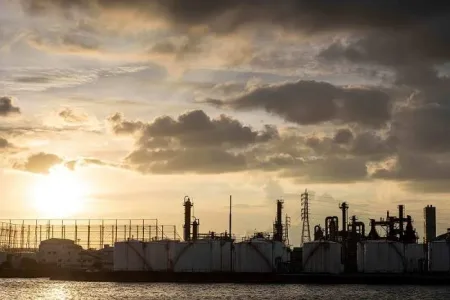You have to find a reliable bank in the Caribbean if you would like to purchase real estate in the region, engage in business there or make a donation to qualify for Caribbean citizenship. Banks constitute an important element of the overall investment climate in the region.
In the text below, we discuss the banking system in the Caribbean and give an overview of the banking opportunities available in that region.
Banking system in the Caribbean
The Caribbean region consists of 35 countries and territories both on the mainland and on the islands. The Eastern Caribbean region has 11 countries – Antigua and Barbuda, Dominica, Grenada, Montserrat, St Kitts and Nevis, St Lucia, St Vincent and the Grenadines, the British Virgin Islands, Anguilla, Martinique, and Guadeloupe.
These countries formed a union of East Caribbean countries in 1983. Similarly to the European Union, citizens of the East Caribbean states can freely move across the countries and the trade between them is also free of customs duties.
In 2001, the organization created the Eastern Caribbean monetary union. This is one of the four such unions existing in the world today. The other three are the Euro Zone, the West African, and the Central African currency unions.
As of the end of 2021, the following countries signed up for the monetary union: Anguilla, Antigua and Barbuda, Dominica, Grenada, Montserrat, St Kitts and Nevis, St Lucia, and St Vincent and the Grenadines. The union brings significant advantages to the small Caribbean countries with similar economies. A system of mutual assistance are resource redistribution is in place. The system helps overcome economic crises and natural disasters with minimal losses. In addition, the countries take uniform positions in international disputes.
The financial system of the Eastern Caribbean monetary union consists of national and international banks, credit institutions, insurance companies, and national development funds. If you would like to learn the details about a particular Caribbean bank, you can find them at the Offshore Pro Group web portal.
The Eastern Caribbean Central Bank oversees the activities of the financial institutions in the region. It acts as the regulatory authority for the countries of the monetary union. Its main goal is to ensure stability of the East Caribbean dollar.
The Central Bank is managed by a Board of Directors that is responsible for appointing members of the Monetary Council. New East Caribbean dollars are emitted on the recommendation of the Monetary Council. The Central bank also controls the accumulation of international currency reserves.
The use of a single currency is economically justified in the case of small states. It allows keeping the inflation in rein: it is only about 2% in the Eastern Caribbean region. In addition to that, the countries have strong economic ties with the USA, which ensures the growth of their financial sectors.
All commercial banks in the Caribbean are licensed by the Eastern Caribbean Central Bank. The banks file monthly, quarterly, and yearly reports on their financial activities. Every year, the Central Bank gives an award to the bank that has demonstrated the most sustainable financial development.
World Bank and Caribbean Development Bank
Two more key components of the Caribbean banking system are the World Bank and the Caribbean Development Bank. They do not finance private business projects but they form and sustain the financial policies of the Caribbean countries. Since 1947, the World Bank has financed more than 12 thousand development projects through grants and loans.
Hurricanes, storms, and volcano eruptions regularly do damage to the economies of the Caribbean islands. For instance, the eruption of La Soufriere volcano in St Vincent and the Grenadines in 2021 led to evacuation of a large number of people. The World Bank sponsors the liquidation of the consequences of natural disasters in the Caribbean.
The primary task of the Caribbean Development Bank is to lessen the social inequality in the region. The bank supports the agricultural sector, educational institutions, small and micro businesses. The current support projects are connected with the liquidation of the consequences of Covid-19 pandemic. For instance, the University of West Indies has received a 6-million dollar grant to develop distance education technologies. These technologies allow involving more students in the education process and avoiding course suspension in case of a pandemic or a similar disaster.
How to choose a reliable bank in the Caribbean
If you would like to set up an account with a Caribbean bank, you will be well-advised to seek professional support in the matter. There is something that you can do yourself, however:
- Check the bank’s license. We repeat: all banks in the Caribbean have to hold licenses issued by the Central Bank.
- Read customer comments. We live in the age of information and you can easily find out what other people think of a particular Caribbean bank. All you need is Internet connection and a browser.
- Make certain that the bank is a member of the Association of the Caribbean banks. The Association was established in 1974 and its main task is to ensure that the bank in the region provide financial services of high quality. The Association lobbies the interests of the banks when national legislations are amended. The Association members exchange information about the latest banking technologies.
Who can open a bank account in the Caribbean?
A natural person or a legal entity from any country of the world is entitled to set up a bank account in the Caribbean. The account opening procedures are similar in all countries in the region. Citizens and legal residents of the Caribbean are eligible to apply for all kinds of banking services. Non-residents have to inquire about the services available to them with each particular bank in the Caribbean.
A bank account can be opened on a personal visit or remotely. In the latter case, a Power of Attorney needs to be issued. Bank accounts can be set up in East Caribbean dollars, US dollars, or euros.
Become a citizen of the Caribbean
To gain full access to the banking opportunities in the Caribbean, you can consider acquiring citizenship of a Caribbean country by investment.
A Caribbean passport is one of the most affordable passports ‘for sale’. The process of acquiring Caribbean citizenship extends over 4 to 6 months only. There are five countries in the region that administer citizenship-by-investment programs and all of then offer at least two options to foreign nationals seeking their citizenship: a non-returnable donation or a returnable investment in real estate.
Caribbean countries with citizenship-by-investment programs
At the moment, you can choose one of the following countries in the Caribbean if you would like to obtain foreign citizenship for money:
| Country | Donation amount | Investment amount | Passport issuance timeframe |
| Dominica | US$ 100,000 | US$ 200,000 | 2-6 months |
| Antigua and Barbuda | US$ 100,000 | US$ 200,000 | 4-6 months |
| Saint Lucia | US$ 100,000 | US$ 200,000 | 3-4 months |
| Grenada | US$ 150,000 | US$ 220,000 | 4-6 months |
| Saint Kitts and Nevis | US$ 250,000 | US$ 400,000 | 5-6 months |
As you can see, the donation/ investment amounts are far from extravagant and a second passport opens wide new perspectives for you. Make your choice!



